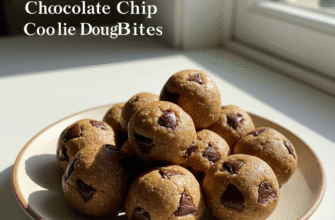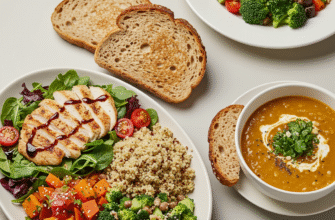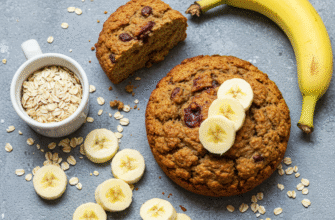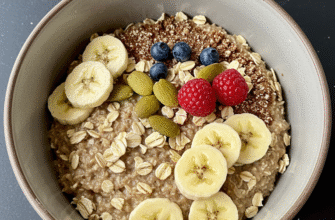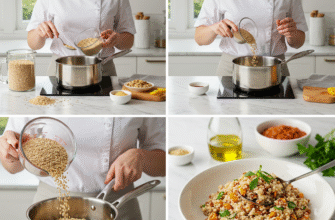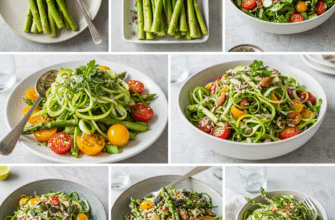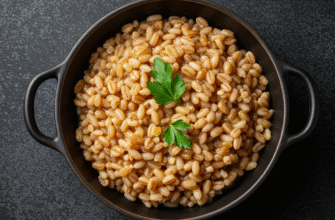That mid-afternoon slump hits, or maybe it’s the late-night munchies calling your name. What do you reach for? If it’s often a crinkly bag of chips, a sugary candy bar, or some other pre-packaged convenience food, you’re certainly not alone. Processed snacks are everywhere – they’re easy, often tasty, and heavily marketed. But deep down, many of us know they aren’t the best fuel for our bodies. They frequently offer a quick burst of satisfaction followed by an energy crash, leaving us feeling less than stellar and sometimes even hungrier than before.
The good news? Making a switch to healthier snack options doesn’t have to mean deprivation or complicated recipes. It’s about choosing foods that provide real nourishment, sustained energy, and genuine satisfaction. Moving away from the hyper-processed aisle towards whole, simpler foods can make a surprising difference in how you feel day-to-day.
Why Rethink That Processed Snack?
Before diving into the delicious alternatives, let’s briefly touch upon why those convenient processed snacks might not be your best friends. It’s not about demonizing any single food, but understanding the general pattern. These items are often engineered for maximum craveability, which usually means high levels of:
- Added Sugars: Beyond the obvious culprits like cookies and candy, sugar hides in savory snacks, crackers, and even some yogurts. Too much added sugar contributes to energy spikes and crashes, and offers little nutritional value.
- Unhealthy Fats: Trans fats and excessive amounts of saturated fats are common in fried snacks, baked goods, and many packaged treats. While our bodies need fat, these types aren’t the beneficial ones.
- Sodium: Chips, pretzels, crackers, and even some “healthy” bars can be loaded with salt. While sodium is an essential mineral, excessive intake isn’t ideal for overall wellness.
- Refined Grains: White flour, often found in crackers, pastries, and snack cakes, lacks the fiber and nutrients present in whole grains. This leads to quicker digestion and less sustained energy.
- Artificial Ingredients: Colors, flavors, preservatives – the ingredient lists can sometimes read like a chemistry experiment. While regulated, minimizing intake of artificial additives is a choice many prefer.
Essentially, many processed snacks provide “empty calories” – energy without substantial vitamins, minerals, fiber, or protein. They fill a momentary craving but don’t contribute positively to your body’s needs.
Embracing Whole Foods for Snacking
The antidote to processed pitfalls? Whole foods! These are foods that are close to their natural state, minimally processed, and packed with the good stuff your body actually recognizes and utilizes effectively. Think fruits, vegetables, nuts, seeds, legumes, and whole grains. Snacking on whole foods provides:
- Sustained Energy: Fiber, protein, and complex carbohydrates digest more slowly, providing a steady release of energy rather than a sharp spike and crash.
- Essential Nutrients: Vitamins, minerals, antioxidants – whole foods are nutritional powerhouses that support countless bodily functions.
- Increased Satiety: The fiber and protein in whole foods help you feel fuller for longer, reducing the urge to overeat or reach for another snack too soon.
- Better Digestion: Fiber is crucial for a healthy digestive system, and whole foods are typically rich in it.
Making the shift is about reframing snacking as an opportunity to nourish your body between meals, not just fill a void.
Delicious & Simple Healthy Snack Swaps
Ready for some practical ideas? Ditching the processed stuff is easier when you have appealing alternatives ready to go. Here are some categories packed with fantastic options:
Fresh & Fruity Delights
Fruit is nature’s candy – sweet, hydrating, and full of vitamins and fiber. It’s incredibly versatile and requires minimal preparation.
- Apples: Crisp, satisfying, and great paired with a tablespoon of peanut or almond butter for added protein and healthy fats.
- Bananas: Portable energy boosters, rich in potassium. Eat plain or mash onto a rice cake.
- Berries: Strawberries, blueberries, raspberries – loaded with antioxidants and fiber. Enjoy a bowlful plain or mix into yogurt.
- Oranges/Clementines: Juicy, refreshing, and packed with Vitamin C. Easy to peel and take on the go.
- Grapes: A hydrating and naturally sweet treat. Freeze them for a cool, sorbet-like snack in warmer weather.
- Melon Chunks: Watermelon, cantaloupe, honeydew – high water content makes them super hydrating and refreshing.
Crunchy & Colorful Veggies
Vegetables aren’t just for dinner! They offer fantastic crunch, hydration, and a wealth of nutrients with very few calories.
- Carrot Sticks: Classic crunch, great source of Vitamin A.
- Celery Sticks: Hydrating and satisfyingly crunchy. Pair with hummus or cream cheese.
- Bell Pepper Slices: Red, yellow, or orange peppers offer sweetness and a hefty dose of Vitamin C.
- Cucumber Slices: Cool, crisp, and incredibly hydrating. Delicious with a sprinkle of salt and pepper or dipped in tzatziki.
- Cherry Tomatoes: Sweet little bursts of flavor, packed with lycopene.
- Snap Peas or Snow Peas: Edible pods offer a slightly sweet crunch and fiber.
Tip: Pair your veggies with a healthy dip like hummus, guacamole (rich in healthy fats), black bean dip, or plain Greek yogurt mixed with herbs for added flavor and staying power.
Nuts, Seeds & Healthy Fats
These are calorie-dense, so portion control is key, but they offer valuable healthy fats, protein, and fiber that promote satiety.
- Almonds: A handful provides protein, fiber, and Vitamin E.
- Walnuts: Excellent source of omega-3 fatty acids.
- Pistachios: Fun to shell (which can help slow down consumption!) and offer protein and fiber.
- Pumpkin Seeds (Pepitas): Good source of magnesium and zinc.
- Sunflower Seeds: Provide Vitamin E and selenium.
- Chia Seeds/Flax Seeds: Add to yogurt or smoothies for fiber and omega-3s (flax needs to be ground).
- Avocado: Half an avocado sprinkled with salt and pepper, or mashed onto a whole-grain cracker, provides healthy fats and fiber.
Be Label Savvy! Don’t assume all packaged snacks labeled ‘healthy’, ‘natural’, or ‘low-fat’ are genuinely good choices. Many granola bars, trail mixes, dried fruits, and flavored yogurts can contain surprisingly high amounts of added sugar, sodium, or refined ingredients. Always take a moment to check the nutrition facts panel and the ingredient list to make an informed decision.
Protein-Packed Options
Protein helps keep you full and supports muscle health. It’s a great component for a satisfying snack.
- Plain Greek Yogurt: High in protein. Add your own fruit, nuts, or a drizzle of honey for flavor control.
- Cottage Cheese: Another protein powerhouse. Enjoy plain, with fruit, or savory with black pepper and tomatoes.
- Hard-Boiled Eggs: Simple, portable, and packed with protein and nutrients. Make a batch ahead of time.
- Edamame (Steamed Soybeans): Fun to eat, good source of plant-based protein and fiber. Buy frozen and steam quickly.
- Roasted Chickpeas: Toss canned (rinsed) chickpeas with olive oil and spices, then roast until crispy. A crunchy, savory, high-fiber alternative to chips.
Whole Grain Goodness
Choose whole grains for fiber and more sustained energy release compared to refined grains.
- Plain Rice Cakes: A blank canvas! Top with avocado, nut butter, or hummus and cucumber.
- Whole-Wheat Crackers: Look for options with simple ingredients and pair with cheese, hummus, or avocado.
- Small Bowl of Oatmeal: Not just for breakfast! A small serving of plain oats (add your own toppings) can be a very filling snack.
- Air-Popped Popcorn: A whole grain! Make it yourself to control salt and fat. Skip the heavy butter and excessive salt of microwave or movie theatre popcorn.
Making the Healthy Snack Transition Smooth
Switching habits takes time and intention. Here are a few tips to make choosing healthier snacks easier:
- Plan Ahead: Don’t wait until you’re starving. Pack snacks for work or outings. Wash and chop veggies or portion out nuts over the weekend.
- Keep Healthy Options Visible: Place a fruit bowl on the counter. Store cut veggies and hummus at eye-level in the fridge. Keep processed snacks out of sight (or out of the house).
- Start Small: Swap out one processed snack per day for a healthier alternative. Gradually increase as you feel comfortable.
- Read Labels Carefully: As mentioned in the warning, even seemingly healthy packaged items can hide unwanted ingredients. Become familiar with reading nutrition facts.
- Hydrate First: Sometimes thirst masquerades as hunger. Try drinking a glass of water before reaching for a snack.
- Listen to Your Body: Are you truly hungry, or just bored, stressed, or eating out of habit? Pause and check in with yourself.
- Don’t Aim for Perfection: It’s okay to enjoy your favorite processed treat occasionally. Focus on making healthier choices most of the time.
Choosing healthier snacks is a fantastic way to boost your nutrient intake, stabilize your energy levels, and support your overall well-being. It’s not about strict rules, but rather about making conscious choices that fuel your body effectively. Experiment with different whole foods, find combinations you genuinely enjoy, and notice how much better you feel when you nourish yourself with real, wholesome ingredients. Your body will thank you!
“`
